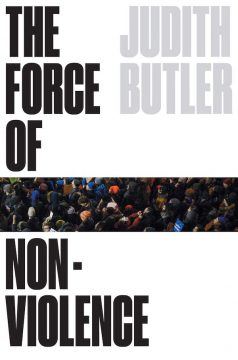 Faisal Devji reviews Judith Butler’s The Force of Nonviolence, in the LA Review of Books:
Faisal Devji reviews Judith Butler’s The Force of Nonviolence, in the LA Review of Books:
NONVIOLENCE, CLAIMS JUDITH BUTLER, echoing the views of virtually all its theorists and practitioners, is neither a virtue born out of weakness nor an unrealistic ideal, but something that exists even in the exertion of force. As M. K. Gandhi put it in his commentary on the Mahabharata, evil depends on goodness, since even an army deployed for the most sinister purpose must rely upon the courage, friendship, loyalty, and sacrifice of its troops for one another more than on the war’s ostensible cause. Violence, then, arises from evil’s failure to master its own instruments, and therefore from virtue itself, which must withdraw from evil to enable its collapse in a process the Mahatma called “noncooperation.” Butler’s book addresses the problem posed by the intertwined character of violence and nonviolence.
For Butler, however, violence is linked to nonviolence by the fact that they must both deploy force, which therefore needs to be appropriated in such a way as to ensure its dedication to nonviolence defined by a focus on the equality or “grievability” of all lives. The importance of force as a morally ambiguous category is clear both from the way it appears as a paradox in her book’s title, The Force of Nonviolence, as well as in Butler’s references to Jacques Derrida’s essay on Walter Benjamin, “Force of Law,” and, indeed, the latter’s own essay on the “Critique of Violence,” to which this in turn refers. But the genealogy produced by this predictable play of cross-references, nicely described by the English phrase “going up one’s own arse,” should give us pause for thought.
More here.
